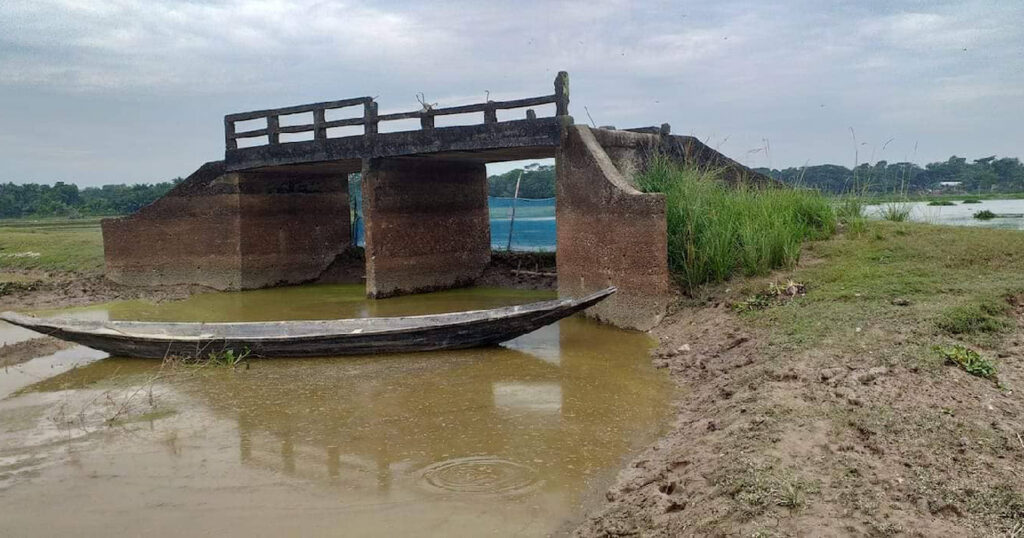In his recently published interview in the Road To Democracy September 2023 issue, BNP’s Acting Chairperson Tarique Rahman criticized the much touted recent ‘development’ of Bangladesh economy as non-inclusive, unsustainable and hollow. He said that BNP would return Bangladesh’s economy on firm foundation of inclusive and sustainable growth if voted into power, similar to the ways the party provided visionary economic leadership during 1976-1981 and 1991-1996. This short analysis aims to provide a historical context of his views on economic development.
While the discourse around the Liberation War of 1971 has obsessed about the number of deaths, the economic dimension of the war is not perhaps as well appreciated. The erstwhile East Pakistan was already one of the poorest corners of the world in 1970. The war had destroyed a fifth of that economy, leaving not a single road, bridge, power grid, railway tracks, factories or any other infrastructure undamaged. The government of Sheikh Mujibur Rahman squandered vast amounts of international aid and assistance and failed to even begin the reconstruction process. Instead, Mujib’s economic mismanagement in the name of so-called socialism and the ‘democracy of the oppressed’ led to a four-fold increase in the cost of living and a full-scale famine with an official death toll of 30,000 people.
That was Bangladesh when Ziaur Rahman was thrust into power in a tumultuous week in November 1975 —a land of utter destitution, reeling from nearly half a decade of deluge, devastation, and death. The late president’s approach to economic development that resulted in the remarkable reconstruction of the country remains relevant to our time.
The Zia government prioritized macroeconomic stabilization through tight money and austerity and initiated the process of privatization of businesses nationalised by Mujib. These policies were undertaken before great reforms of Manmohan Singh and Deng Xiao Ping in India and China, or various structural adjustment packages of the IMF and the World Bank across the Third World, or the coining of the terms neoliberalism and Washington Consensus.
And yet, it would not be quite right to say that this development philosophy was of the rightwing, trickle-down variety. Under the rubric of shamajik nyaybichar —social justice —his government embraced human development, green revolution, rural employment, gender equity and environment. This is the stuff of what we now call sustainable development, though this term too was not in vogue in Zia’s time.
Subsequent BNP governments continued the same synthesis of macroeconomic discipline and policies that enable human development and private enterprise. Budgets were kept in line with revenue generation and financing. Banks and company regulations were reformed to avoid or minimise corruption. Female education was made a key priority. The export bucket started diversifying. The economy continued to grow, and the fruits of growth were widely shared.
While the first Hasina Wajed government of the 1990s tried to continue the same policies, this has not been the case for the current regime. Particularly over the past decade, Bangladesh has shifted to a very different political economy where the Prime Minister has struck a bargain with a few oligarchs whereby the latter are given access to the energy, infrastructure and banking sectors on very favourable terms while they support the former in her quest to illegally stay in power. The result has been shiny infrastructure that has been built with cost overruns, draining the public coffers, ballooning debt, and fuelling inflation. These megaprojects and sweetheart deals make the rich even richer, even as the lack of policies to help the poor progress in life means the inequality continues to rise.
This is the context in which Tarique Rahman has observed (Tarique Rahman interview with RTD) that ‘there is more to development than a few roads, bridges and tunnels at inflated cost’. Mr Rahman understands that if BNP is given the responsibility to govern, on economic policies it will mean a return to the basics —fiscal and monetary sector discipline to stem both debt and prices from rising, and then reorient the policy focus from big stuff made with concrete for the big end of the town to improving services for the common people of Bangladesh.


